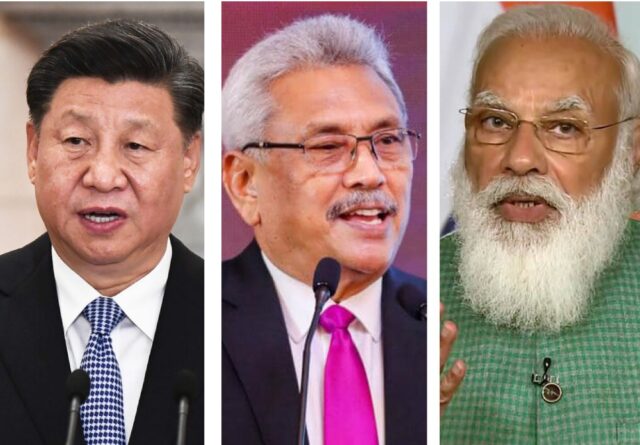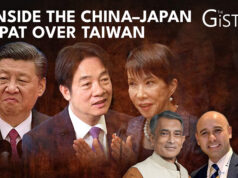COLOMBO: The issue of the Colombo Port City Economic Commission is now done and dusted, with Speaker Mahinda Yapa Abeywardena signing and validating the Bill, which was passed by Parliament the previous week. Thereby, the Colombo Port City Economic Commission Act is now effective.
However, the legislation has thrown up several key geopolitical issues, from whether Sri Lanka will be able to effectively implement its non-aligned foreign policy, to the degree to which Sri Lanka will permit the Chinese to dictate its domestic policy.
The Port City has also pushed India to rethink its position in Sri Lanka—is India still Sri Lanka’s big brother or has the island now found itself a new big brother in China?
India as well as other nations focused on the Indian Ocean region believe that the Colombo Port City is the second major project for China in Sri Lanka, following the acquisition of the Hambantota Port on a 99-year lease. These two projects play a key role in China’s Belt and Road Initiative (BRI).
India reportedly views China’s BRI, as well as the Maritime Silk Route, as Beijing’s ventures to boost its influence in the world and saddle countries taking Chinese loans for the projects within the initiatives with unsustainable levels of debt.
The Chinese influence in Sri Lanka continues with China also receiving another major development project in the country—the elevated highway project—a week after the passage of the Port City Economic Commission legislation. Chinese companies are already engaged in many development projects covering key economic sectors in Sri Lanka.
To India, all these are a series of continuous blows to its position as the regional superpower, since China seems to be setting up base right in India’s most strategically significant maritime neighbour—Sri Lanka. Given China’s growing ties with other South Asian countries, including Pakistan and Bangladesh, India seems to be in danger of geopolitical encirclement.
India has already suffered two setbacks in Sri Lanka. First was the decision by the Sri Lankan Government to renege on the tripartite agreement reached with India and Japan on the development of the Eastern Container Terminal (ECT) in the Colombo Port. The change in the government’s stance on the ECT early this year was the first to sour relations between Sri Lanka and India.
The next issue was the granting of several hybrid renewable energy projects in the islands off the Jaffna peninsula to a Chinese company. Although the Government of Sri Lanka claimed the awarding of the project was following a tender process initiated by the Asian Development Bank (ADB), to India, it was the Chinese gaining access to India’s backyard, given the close proximity between the respective islands and India.
India immediately approached the government led by President Gotabaya Rajapaksa and Prime Minister Mahinda Rajapaksa and communicated its concerns over the project being granted to China, proposing that India would provide funding for the said project instead. India’s wanted the Sri Lankan Government to cancel the tender and to proceed with the project with the funding promised by India. However, months have elapsed and the Sri Lankan Government is yet to respond to the Indian request.
Several Cabinet ministers have stated that cancelling such a tender would result in the country facing legal implications. Nevertheless, to India, all these are signs of Sri Lanka systematically snubbing its traditional democratic allies in favour of building stronger commercial and military ties with communist China.





